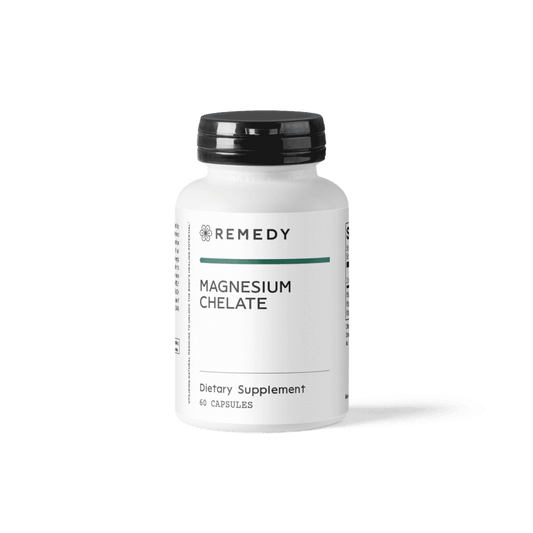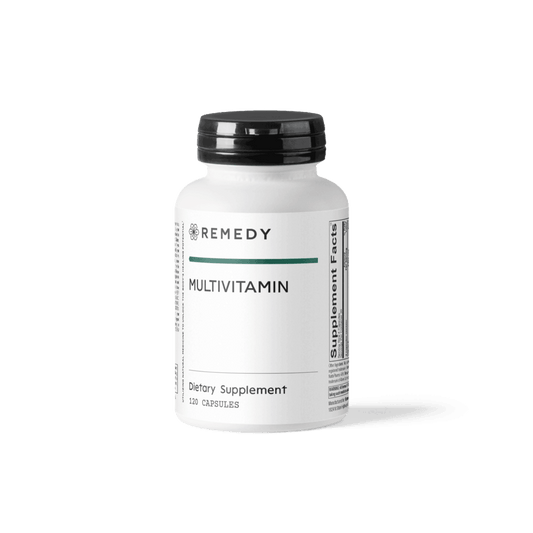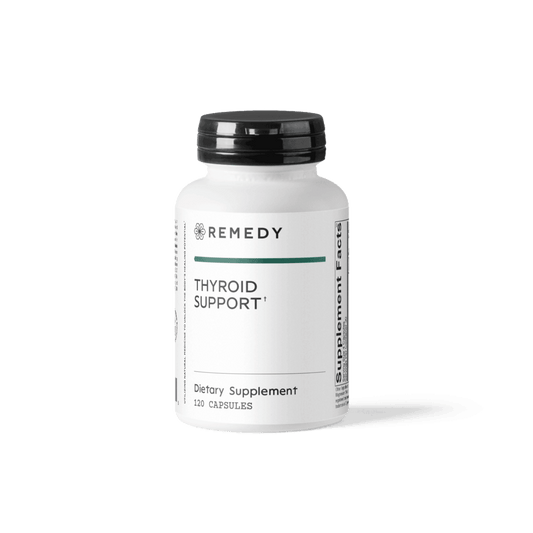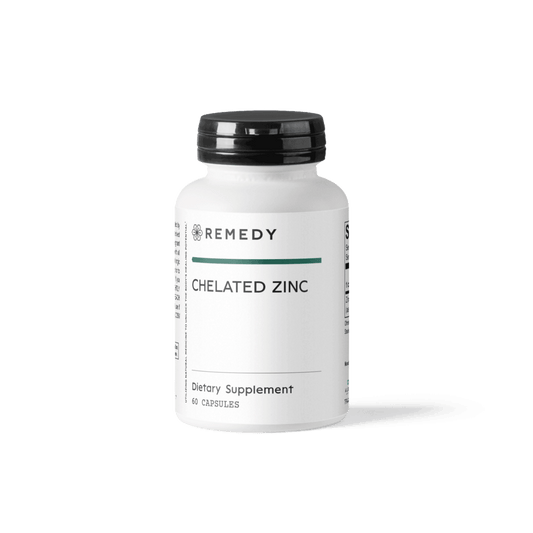Share
The gut-thyroid connection can be a vicious cycle. Thyroid problems can cause poor digestive health, and poor digestive health may cause the treatment of thyroid disorders to be ineffective.
When you are diagnosed with a thyroid disorder you probably think all of your symptoms are due to a dysfunctioning thyroid. The truth is, that may not be the case. Your thyroid problems are likely also linked to poor gut health.
Thyroid conditions are usually associated with symptoms like fatigue, weight gain or weight loss, anxiety, and hormone imbalance.
What you may not realize is that gut health issues like indigestion, acid reflux, bloating, constipation, and irritable bowel syndrome can be signs of thyroid problems, too.
This is great news for anyone who has struggled to diagnose or deal with their thyroid disorder. Understanding the gut-thyroid connection is important information for you to be able to advocate for yourself and your health properly.
What Does the Thyroid Do?
To start the conversation, you need to understand the role of the thyroid. The thyroid is a butterfly-shaped endocrine gland situated at the base of your throat. Its job is to make thyroid hormones which are secreted into the bloodstream and carried around the body. These hormones help the body use energy, stay warm, and keep the brain, heart, muscles, and other organs working as they should.
Basically, the thyroid regulates your body’s metabolic processes and influences digestion, the heart, mood, brain development, and muscle control. Several conditions induced by autoimmunity and nutrient deficiencies can influence the thyroid gland.
Two of these conditions are known as hypothyroidism and hyperthyroidism. Each of these is associated with an autoimmune condition as well.
For example, Hashimoto’s occurs when your body attacks the thyroid and inhibits it from producing enough of the thyroid hormone (hypothyroidism). On the other hand, Graves Disease occurs when your body over-stimulates the thyroid and creates too much of the thyroid hormone (hyperthyroidism).
Why is Gut Health Important?
Now, where does the gut come into play? Your gut refers to the small and large intestines and is supported by the stomach, liver, pancreas, and gallbladder. One of the most important aspects of gut health is your gut microbiome which lives mostly in the large intestines.
The gut microbiome consists of trillions of organisms like bacteria, viruses, fungi, parasites, and yeasts. While that may sound gross, the gut microbiome is essential to your health. Gut microbes perform a variety of functions for the body like the following:
- Produce vitamins, including vitamin K and B vitamins
- Produce short-chain fatty acids
- Support immune function and defends against pathogens
- Influence how often you go to the toilet
- Ferment fiber that your body cannot digest
- Influence mood and mental health
- Influence sleep
- Support hormone regulation
- Regulate metabolism
The Gut-Thyroid Connection
Gut health affects your thyroid health and vice versa. Don’t take my word for it, scientific evidence strongly supports the gut-thyroid connection. For example, research shows that gut conditions and thyroid conditions usually occur together.
Leaky Gut - children with Hashimoto’s were found to have increased intestinal permeability.
Celiac Disease - there was found a prevalence of celiac disease in patients with autoimmune thyroid disorders.
Low Stomach Acid - up to 40% of Hashimoto’s patients were found to have chronic low stomach acid.
SIBO - patients with small intestinal bacterial overgrowth were more likely to have impaired thyroid function than healthy controls.
Research also shows that treating gut conditions can improve thyroid health.
The fact of the matter is, thyroid hormones play a huge role in how well we digest, assimilate, and absorb our food and nutrients. That’s because thyroid hormones like thyroxine (T4) and triiodothyronine (T3) define basal metabolism throughout the entire body, particularly in the intestine and internal organs.
Here’s the deal, the gut-thyroid connection can be a vicious cycle. Thyroid problems can cause poor digestive health, and poor digestive health may cause the treatment of thyroid disorders to be ineffective.
Let’s look at the liver as a prime example of the gut-thyroid connection. Your liver produces enzymes and bile essential to digestion and the assimilation of proteins, sugars, and fats. It also works hard to metabolize toxins and control the amount of glucose released into your bloodstream. When the liver isn’t functioning properly neither will your digestion.
However, your liver cannot function properly without a healthy thyroid, and research has shown the liver is the organ most affected by hyper- and hypothyroidism.
Does Leaky Gut Cause Thyroid Problems?
Unfortunately, yes, a leaky gut can cause thyroid problems. Leaky gut, or increased intestinal permeability, is due to an imbalance of the bacteria in your gut. This imbalance is also known as gut dysbiosis. The composition of the gut microbiota has an influence on the availability of essential micronutrients for the thyroid gland.
Increased intestinal permeability also allows bacteria and endotoxins to build up in the bloodstream creating an immune response. This immune response is associated with the development of autoimmune diseases like Hashimoto’s.
Treatment for Gut-Thyroid Problems
Due to the fact that gut health issues and thyroid problems can occur simultaneously, the key to treatment is to identify the root cause of your symptoms. This is where functional medicine can help you. A functional medicine approach seeks to identify and address the cause of your symptoms rather than cover up the symptoms.
Depending on your individual case a treatment plan for gut-thyroid problems will include the following:
A Custom Nutrition Plan - This includes eliminating trigger foods like gluten, refined sugar and artificial sweeteners, food sources of heavy metals, and highly processed foods. It also includes increasing your intake of nutrient-dense foods such as foods high in selenium, zinc, iron, B vitamins, and vitamin A. Foods rich in healthy fats like olive oil, nuts, avocados, and omega-3s are added as well.
The Correct Medication - Medication is not needed for every individual, however, there are some cases where thyroid hormone replacement therapy may be needed. It is a good idea to work with a functional medicine practitioner to help monitor your levels and ensure optimal levels and conversions.
Personalized Supplements - Many people with gut-thyroid problems are dealing with nutrient deficiencies. Supplementing with a high-quality multi-vitamin, probiotics, and the right adaptogenic herbs can help.
Lifestyle Changes - a low-toxic lifestyle will help reduce inflammation and balance your hormones. That includes choosing non-toxic household products, breathing clean air, exercising regularly, and managing your stress levels.
Work with a Functional Medicine Practitioner
If you suspect your thyroid is out of whack or are curious about your overall health, schedule a 15-minute consultation with me. As a functional medicine practitioner, I’ll help you get to the root of your gut-thyroid problems.








